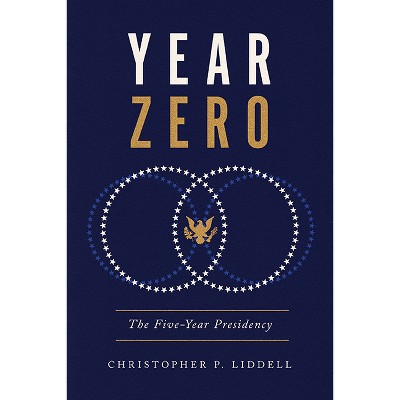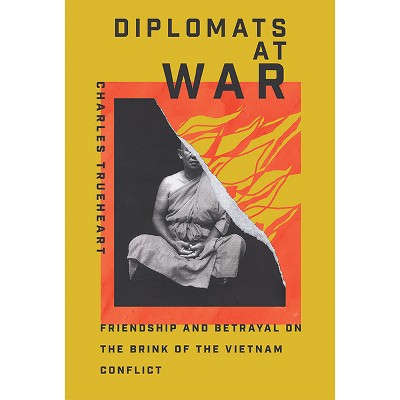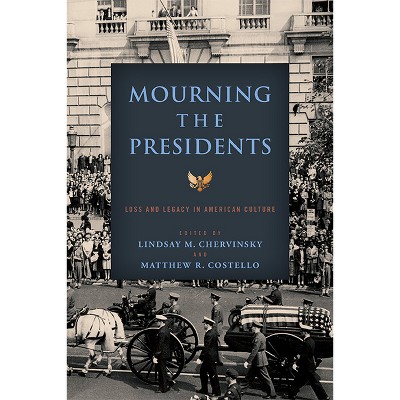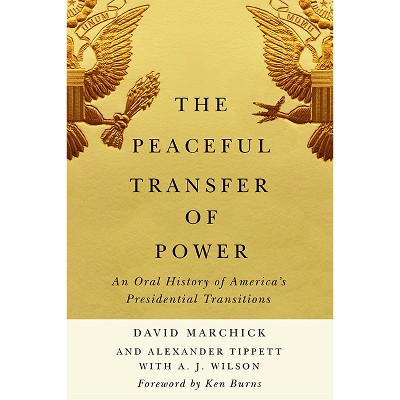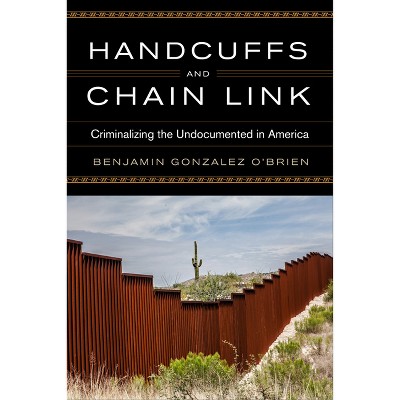Sponsored

Fatal Politics - (Miller Center Studies on the Presidency) by Ken Hughes (Paperback)
In Stock
Sponsored
About this item
Highlights
- In his widely acclaimed Chasing Shadows ("the best account yet of Nixon's devious interference with Lyndon Johnson's 1968 Vietnam War negotiations"-- Washington Post), Ken Hughes revealed the roots of the covert activity that culminated in Watergate.
- About the Author: Ken Hughes, researcher at the University of Virginia's Miller Center Presidential Recordings Program, is the author of Chasing Shadows: The Nixon Tapes, the Chennault Affair, and the Origins of Watergate (Virginia).
- 288 Pages
- History, United States
- Series Name: Miller Center Studies on the Presidency
Description
About the Book
Fatal Politics is available as a special e-book that allows the reader to move seamlessly from the book to transcripts and audio files of these historic conversations.Book Synopsis
In his widely acclaimed Chasing Shadows ("the best account yet of Nixon's devious interference with Lyndon Johnson's 1968 Vietnam War negotiations"-- Washington Post), Ken Hughes revealed the roots of the covert activity that culminated in Watergate. In Fatal Politics, Hughes turns to the final years of the war and Nixon's reelection bid of 1972 to expose the president's darkest secret.
While Nixon publicly promised to keep American troops in Vietnam only until the South Vietnamese could take their place, he privately agreed with his top military, diplomatic, and intelligence advisers that Saigon could never survive without American boots on the ground. Afraid that a preelection fall of Saigon would scuttle his chances for a second term, Nixon put his reelection above the lives of American soldiers. Postponing the inevitable, he kept America in the war into the fourth year of his presidency. At the same time, Nixon negotiated a "decent interval" deal with the Communists to put a face-saving year or two between his final withdrawal and Saigon's collapse. If they waited that long, Nixon secretly assured North Vietnam's chief sponsors in Moscow and Beijing, the North could conquer the South without any fear that the United States would intervene to save it. The humiliating defeat that haunts Americans to this day was built into Nixon's exit strategy. Worse, the myth that Nixon was winning the war before Congress "tied his hands" has led policy makers to adapt tactics from America's final years in Vietnam to the twenty-first-century conflicts in Iraq and Afghanistan, prolonging both wars without winning either.
Forty years after the fall of Saigon, and drawing on more than a decade spent studying Nixon's secretly recorded Oval Office tapes--the most comprehensive, accurate, and illuminating record of any presidency in history, much of it never transcribed until now-- Fatal Politics tells a story of political manipulation and betrayal that will change how Americans remember Vietnam. Fatal Politics is also available as a special e-book that allows the reader to move seamlessly from the book to transcripts and audio files of these historic conversations.
Review Quotes
Hughes ends by writing that Nixon's myth of a 'victory' in Vietnam masks cowardice for political courage and replaces patriotism with opportunism. Nixon prolonged a lost war. He then faked a peace. And he then schemed to shift the blame onto Congress. As long as that truth is masked, other presidents can play politics with the lives hundred of thousands of innocent civilians, and tens of thousands of American soldiers.
--Consortium NewsKen Hughes, a researcher in the University of Virginia's Miller Center PresidentialRecordings Program, has provided a great service to Vietnam War scholars and those interested in understanding the history of the Vietnam War.... Hughes has taken us into areas of Nixon's administration that we only previously imagined and provided insightsinto a tragic period of American history. This is an important book that adds a lot to the historiography of the Vietnam War.
--Political Science QuarterlyWoodward cites the work of Ken Hughes of the University of Virginia's Miller Center to show that 'the massive bombing did not do the job militarily but it was politically popular. Hughes argues with a great deal of evidence that the bombing was chiefly designed so Nixon would win re-election.'
--Washington PostKen Hughes is one of America's foremost experts on secret presidential recordings.
About the Author
Ken Hughes, researcher at the University of Virginia's Miller Center Presidential Recordings Program, is the author of Chasing Shadows: The Nixon Tapes, the Chennault Affair, and the Origins of Watergate (Virginia). His work as a journalist has appeared in the New York Times Magazine, the Washington Post, the Boston Globe Magazine, and Salon.
Shipping details
Return details
Trending Non-Fiction







